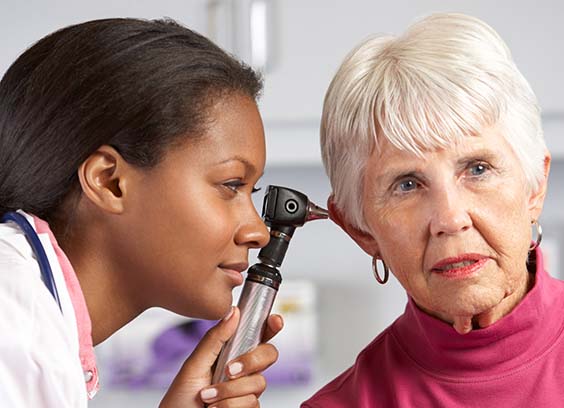Tinnitus can be an extremely debilitating condition which usually builds up gradually over a number of years but which can in some cases arise following illness or infection.
A key feature of tinnitus is that it can creep up so slowly, destroying the ability to hear properly, that the person who has it doesn’t realise that this is what is affecting their hearing and not simply ‘old age’.
What is Tinnitus?
It is a noise in the ears that can be either constant or intermittent and loudness can be variable too. It can range from mildly annoying to distressing if it never goes away. People with tinnitus report a variety of noises and these include:
- Whistling
- Ringing
- Buzzing
- Humming
- Roaring
- Clicking
The sounds, varying in pitch and intensity can be heard in just one ear or in both ears and many sufferers complain that at its worst it interferes with their daily life and affects mental health.
There are two kinds of tinnitus. The most common form is called ‘subjective tinnitus’ and means that only you can hear the sounds. The second is called ‘objective tinnitus’ and can be heard by a doctor during an examination of the ear.
Causes of Tinnitus
The causes of this condition are many and varied but the most common cause is prolonged exposure to loud noise either from listening to loud music through earbuds or head phones, or from using noisy equipment in an industrial setting. Age–related hearing loss is a very common cause of tinnitus which will start around the age of 60 and get progressively worse. Smoking poses a higher risk of tinnitus.
Other causes can include ear wax blockage or stiffening of the middle ear bones, muscle spasms in the ear, Meniere’s Disease or temperomandibular disorders, or blood vessel disorders. Cardiovascular conditions such as high blood pressure or narrowed arteries can also increase the risk of developing tinnitus.
Some medications, especially those given in high dosages, can cause or worsen tinnitus. These can include antibiotics, diuretics, aspirin, certain antidepressants and even some cancer medications.
Signs an Elderly Patient May Have Tinnitus
Because there are no outward signs and that elderly people are less likely to complain of unusual noises in their ears or any changes in their hearing it can be difficult for those caring for elderly people to realise that there’s a problem. However there are subtle signs to look for and if your elderly loved one is getting care in their own home, those who provide 24/7 home care services are best placed to spot them. You may observe subtle changes like:
- The elderly person starts to have difficulty in concentrating on anything
- They may have memory problems
- Trouble sleeping which can lead to chronic fatigue
- Stress brought on through hearing the constant unexplained noises
- Depression, anxiety and irritability can develop
How to Help
Regular exercise and healthy eating will help to keep the cardiovascular system in good order. How effective are supplements for tinnitus? Seeing a doctor regularly for check-ups regarding blood pressure, heart health and hearing can help reduce the severity of tinnitus..
The British Tinnitus Association (https://www.tinnitus.org.uk/self-help) offers advice on other measures which can help relieve the stress of tinnitus.
